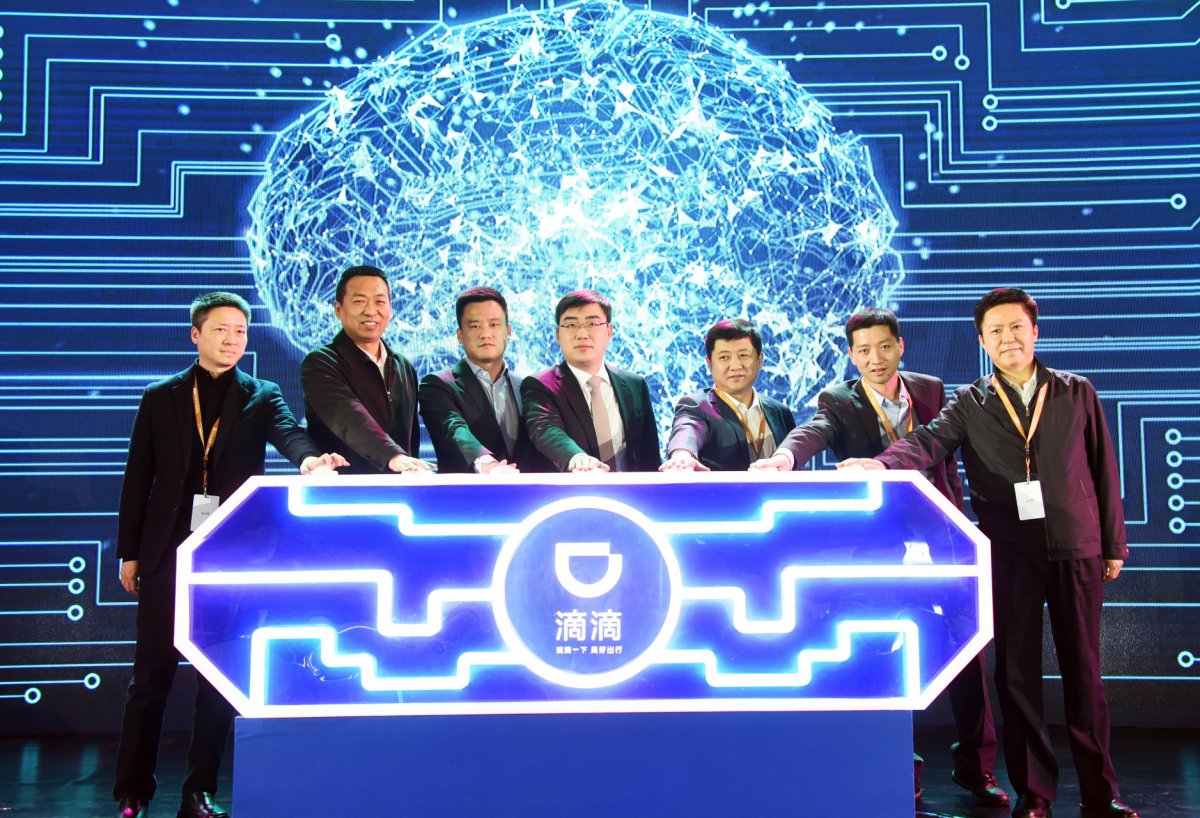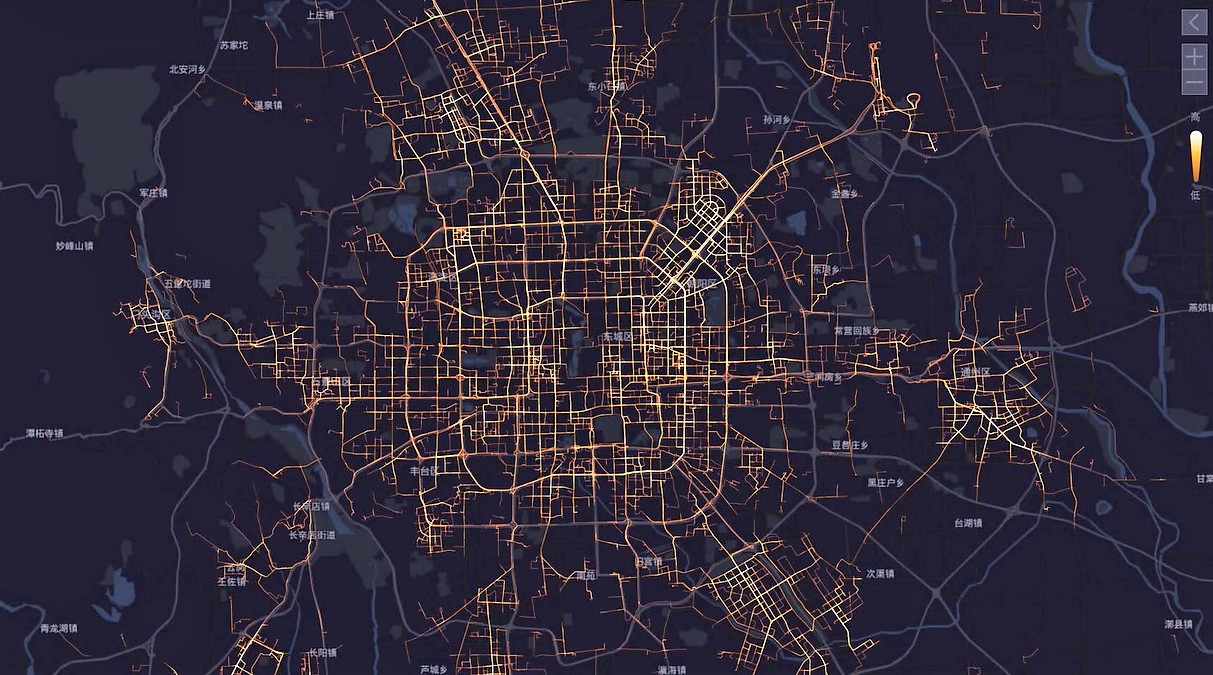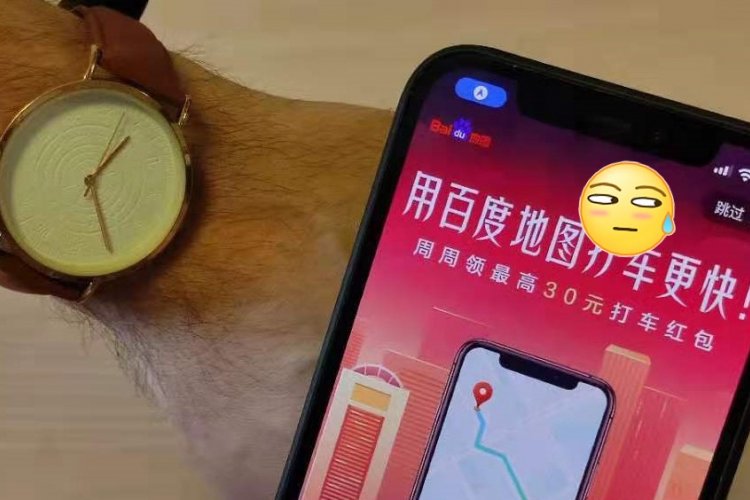Didi is Using Its New AI Brain to Crack the Toughest Puzzle – Our Cities
This post comes courtesy of our content partners at TechNode.
Didi is becoming big in big data and, according to latest announcements, their new project is set to change how cities look at mobility. The Chinese ride-hailing giant has just launched the “Didi Smart Transportation Brain,” a solution that brings data from government and other partners to develop a city traffic management powered by AI and cloud technology.
What the Brain is solving is not just traffic jams, it’s a huge city-sized puzzle. The project has been in development for around a year now, piloting in over 20 Chinese cities. It’s a multidisciplinary endeavor: it includes analyzing data from video cameras, sensors and GPS signals from Didi’s cars, installing intelligent traffic lights, working with local traffic police and city planners.
“The transportation industry is still nascent in terms of data analytics and what we are trying to do is be the frontrunner with Didi’s network, dataset, infrastructure and technologies to push the frontier for transportation,” Liu Xidi, the head of Public Transportation Division at Didi Chuxing told TechNode during Didi’s Intelligent Transportation Summit in Beijing held on Thursday.

Didi Chuxing claims it is the largest connected network in the world. The number of drivers that worked on their platform in 2017 was over 21 million, according to Didi’s Senior Vice President Zhang Wensong who talked with TechNode. This huge number is transforming Didi into a different animal than its global competitor Uber and it’s not just implementing AI and big data to optimize their ride-hailing or solve traffic jams. Didi is now a total mobility company covering every aspect of mobility, from infrastructure to vehicles to humans.
Solving city traffic like Google’s AlphaGo
“Usually when we are compared to Uber we mostly pay attention to our technology and our product and we think Didi is a big data and a technology company. Our platform and our technology are probably most advanced in the world,” says Zhang. According to him, the complexity of the dispatching system makes the algorithms behind it extremely sophisticated, much more complicated than what Google’s AI software AlphaGo faces during Go games.
Zhang is a data man. A former CTO and Vice President of Alibaba Cloud Computing he knows his way around numbers and explains the problem that Didi faces in a numerical way:
Passenger A orders a ride and the system dispatches a driver. A millisecond later passenger B pops up and he is located much closer to the driver than passenger A. If the driver were to pick up passenger A instead of passenger B that wouldn’t be an optimized solution: time has been wasted. That’s why the system puts the two passengers in a queue and matches them with drivers that are closer to them.
The problem is that this solution remains the optimal one for a very short time: 2 seconds. After that, another passenger may place an order, in a couple of more seconds the fourth one, and so on. The system has to adapt within 2 seconds.

“This is just an optimized solution for 2 seconds but it’s not an optimized solution for 4 seconds or one minute so we need to anticipate the future,” Zhang explained. “Since we know each day has 86,400 seconds, if we divide it in 2 seconds there are 43,200 steps and we know Go is only 19 multiplied by 19 or 361 steps that’s why our problem is 100 times more complicated than Go.”
The AlphaGo comparison also translates to managing city traffic, according to Didi. The AI program was successful because it analyzed each and every game of Go in the history, including the most complicated ones. Didi is analyzing some of the world’s most complicated cities – China’s cities. Unlike urban centers in developed countries like the US that tend to be well-planned out, cities like Beijing or Manila are often chaotic.
More importantly for Didi’s ride-hailing service, passenger and driver needs are different in China than the US for instance where car ownership is more prevalent. This means Didi can develop services that cater better to environments more similar to China which is the majority of the world. Cracking some of the messiest cases in China both in ride-hailing services and in smart traffic management means that they will have something valuable to offer during their global expansion.
A new product for globalization?
Previously unknown outside China, Didi has been making headway in their globalization goal. After abandoning its US project by turning over their business to Lyft, the company has invested in Brazilian ride-hailing startup 99. It has partnered with several other ride-hailing companies, including Grab in Southeast Asia, Ola in India and Taxify, which has a presence in Europe, Africa, and other regions.
“For smart transportation, we have actually talked to various government entities to tell them what we are trying to do, what we’re doing now and how far we’ve gone,” says Liu. “Most of them are very excited because congestion is not an Asian problem, it’s a global problem, especially in all the major cities – developed and developing.”

However, Liu stresses that the smart transportation division is still in development even though it now has around 200 employees on board. “We are still young, one year old, we are still growing and it takes time.”
The division is now focusing their efforts on Chinese cities, working with local traffic authorities to implement their project and with ministry-level researchers to create standards and policies. They are developing a couple of product lines or units including smart traffic lights, monitoring systems, and optimizing public transportation. Didi has also announced on Friday the opening of its third research institute, the new AI Labs in Beijing which will be led by Prof. Ye Jieping, vice president of Didi Chuxing.
Although no such plans have been announced, it is easy to imagine that Didi will eventually want to monetize its project abroad and this would be a smart investment. Despite all that impressive data and shiny AI algorithms, many governments are reluctant to welcome companies such as Didi, Uber, and Lyft in fears of destroying the local taxi industry and creating a monopoly. Didi’s big data, and sharing of that data, might be a way for Didi to open these markets and assuage those fears.
Images: TechNode, Didi Chuxing








